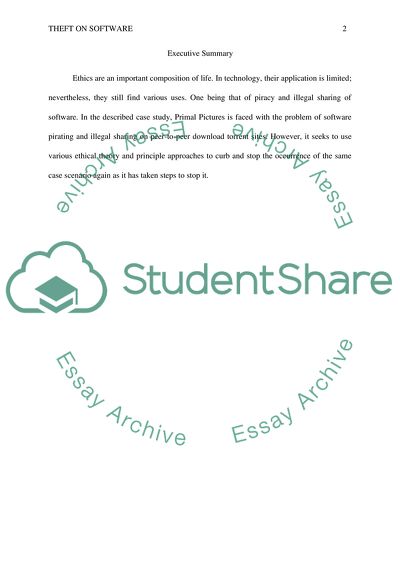Cite this document
(Issue of the Software Theft Case Study Example | Topics and Well Written Essays - 2000 words, n.d.)
Issue of the Software Theft Case Study Example | Topics and Well Written Essays - 2000 words. https://studentshare.org/information-technology/1871157-theft-of-software
Issue of the Software Theft Case Study Example | Topics and Well Written Essays - 2000 words. https://studentshare.org/information-technology/1871157-theft-of-software
(Issue of the Software Theft Case Study Example | Topics and Well Written Essays - 2000 Words)
Issue of the Software Theft Case Study Example | Topics and Well Written Essays - 2000 Words. https://studentshare.org/information-technology/1871157-theft-of-software.
Issue of the Software Theft Case Study Example | Topics and Well Written Essays - 2000 Words. https://studentshare.org/information-technology/1871157-theft-of-software.
“Issue of the Software Theft Case Study Example | Topics and Well Written Essays - 2000 Words”. https://studentshare.org/information-technology/1871157-theft-of-software.


